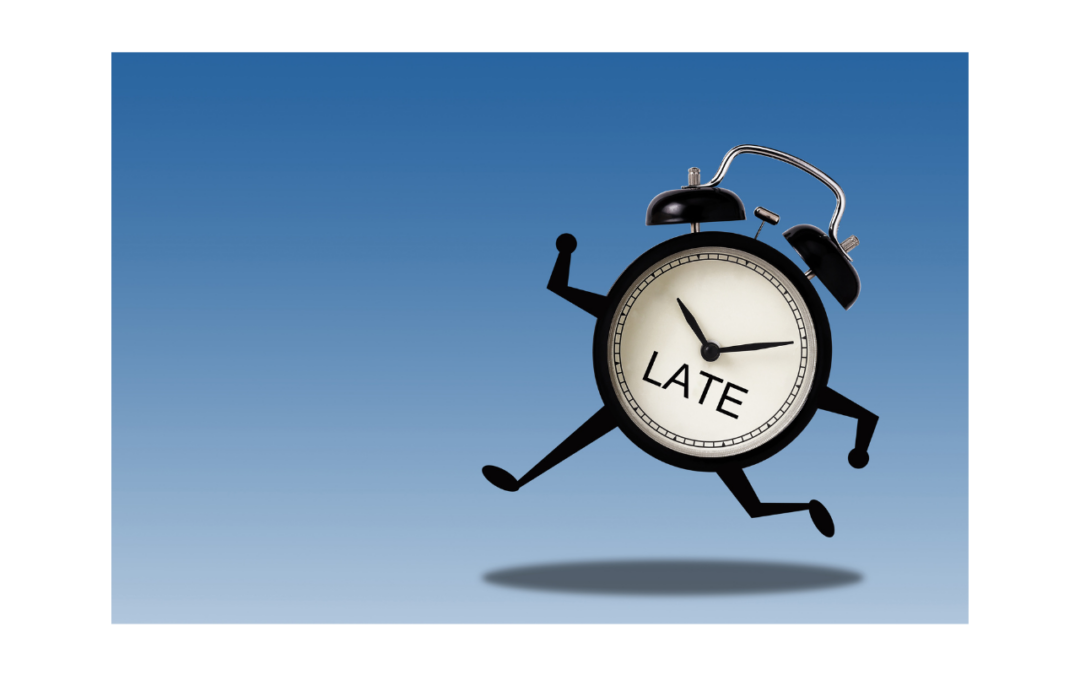
by Erica L. Meltzer | May 16, 2025 | Blog, CELPIP, ESL, IELTS
Of all the many tenses in English, the future is perhaps the most poorly taught (although the present perfect is a strong contender for that non-honor as well). In fact, the way it is generally presented is not just overly confusing but also has very little relationship to how people actually speak. I’ve been looking around the web, and I really haven’t found a single solid explanation. So if you’ve been experiencing some confusion about how native English speakers refer to future events in everyday, informal speech, this guide is for you.
To be clear, I do not cover every possible usage here; rather, the goal is for you to understand the most common, real-life uses of these constructions, as opposed to what the average textbook says. (more…)

by Erica L. Meltzer | Jan 11, 2025 | Blog, Books
Update, 2/28/25: In order to account for material in the four College Board practice exams released at the beginning of February, release of the books has unfortunately been delayed further. The grammar and reading books are currently being checked and should be available in the next week or two; the vocabulary book requires more extensive proofing and may not be available until mid-late month. My apologies for the delays.
As a result of the holiday season, the release of the updated SAT grammar, reading, and vocabulary books has unfortunately been delayed by several weeks. While the release date has not yet been finalized, it is likely to be around February 15th.
If you are planning to take the March SAT, then you should plan to use the current set of books; however, if you intend to sign up for the exam later in the spring of 2025 or after, and do not need to begin studying urgently, you may want to wait.
The alterations to the grammar book are very minor and involve only a section of a single chapter; the updated reading book includes about a dozen new pages involving material that was not included on the first four official digital practice tests, on which the fifth edition was based.
Please note that the reading book will be released as a new, sixth edition, whereas the grammar books will retain its current edition number (six). I am aware that the mismatch in edition numbers has led to some confusion over the years, but going forward, the edition numbers of the most up-to-date grammar and reading books will finally be the same!
The changes to new (third) edition of the vocabulary book are significantly more substantial than those to the grammar and reading books. It has been completely reorganized, and includes more than five new chapters, with detailed definitions of more than 250 College Board favorite words, plus many new exercises to practice applying vocabulary to test-style contexts. Reworking this book has been a massive project, and I hope you’ll think it’s worth the wait!
by Erica L. Meltzer | Oct 19, 2024 | Blog, Books
Over the next few months, updated versions of several Critical Reader guides are projected to be released.
Late October 2024:
- The Complete Guide to ACT® Reading, 2nd Edition
The book will be aligned with the 2024-25 Official Guide and will also include, for the first time, an index of Official Guide Reading questions, grouped by category.
Early January 2025 (exact date TBD):
- SAT® Vocabulary: A New Approach
This will be the 3rd edition and will include detailed definitions/discussions of all 250+ words as well as additional exercises. It will also place a stronger emphasis on learning high-frequency words in terms of categories/topics and in relation to one another, as opposed to memorizing straight-up definitions.
- The Ultimate Guide to SAT® Grammar & The Critical Reader: The Complete Guide to SAT® Reading
Indexes of Official College Board Reading and Writing questions will be added to the respective guides (currently available for download via the Books page).
The reading book will feature about a dozen pages of new material; in the grammar book, some material will be reworked slightly in order to be more precisely aligned with dSAT.

by Erica L. Meltzer | Aug 4, 2024 | Blog
For a while, the notion of “grit” was all the rage in edu-land, but recently it seems to have taken a backseat in the collective consciousness.
Nevertheless, it’s been in mind recently for a couple of reasons: first, because I happened to pick up UPenn psychology professor Angela Duckworth’s eponymous 2016 best-seller while browsing in a bookstore not too long ago, but also because I’ve been thinking about the idea of fixed vs. malleable (alterable) traits.
In the book, Duckworth distinguishes between “fixed” mindset, in which talents and other abilities are held to be innate and unchangeable; and “growth” mindset, in which those capabilities can be learned and developed through practice. The author identifies grit, or a combination of persistence, as the key factor that distinguishes the performance of the highest achievers in a variety of fields (sports, music, etc.) from those at a lower level. (more…)

by Erica L. Meltzer | May 18, 2024 | Blog
In my previous post, I looked at how universities’ reliance on adjuncts and the resulting grade inflation in freshman composition classes trickles back to the high school level, depressing minimum SAT/ACT English scores (“benchmarks”) correlated with earning passing grades in college writing courses. I think, however, that there is another major factor at play at as well here: not only are composition instructors pressured to award higher-than-merited grades, but at many institutions, the classwork itself has become less demanding. This phenomenon seems especially pronounced at less-selective college, which enroll the vast majority of students with low scores.
While writing the original piece, I got curious about the general state of freshman composition and looked up courses at a wide swath of U.S. universities, public and private, of varying degrees of selectivity. After reading through numerous course descriptions, I started to notice a pattern emerging: highly competitive private and public schools generally emphasize a fairly traditional set of academic writing skills—essentially what would be expected from an introductory college-writing class— even if they present them within a framework of contemporary topics. Less prestigious schools, in contrast, seem to be moving toward a definition of composition that de-emphasizes academic writing, and that in some cases is expanded to encompass even non-writing activities such as podcasts and films. (more…)

by Erica L. Meltzer | Mar 2, 2024 | Blog
Among conjunctions (transitional words), however and though pose a particular challenge because they are so similar in terms of both of both meaning and usage. But while there is significant overlap between them, they are not entirely identical from a grammatical standpoint. The fact that they can be used interchangeably in some situations does not mean that one can always be substituted for the other.
However is a conjunctive adverb. It can be used in the following ways:
- To begin a sentence, followed by a comma
Correct: Many of the writing surfaces used in the past deteriorated quickly. However, some clay tablets have endured for thousands of years.
- In the middle of a sentence between two commas (non-essential)
Correct: Many of the writing surfaces used in the past deteriorated quickly. Some clay tablets, however, have endured for thousands of years.
- At the end of a sentence, after a comma
Correct: Many of the writing surfaces used in the past deteriorated quickly. Some clay tablets have endured for thousands of years, however.
Though can act as two different parts of speech.
As a subordinating conjunction, it can begin a dependent clause (fragment) that cannot stand on its own as a sentence.
Fragment: Though many of the writing surfaces used in the past deteriorated quickly.
The dependent clause can be placed before an independent clause to form a complete sentence.
Correct: Though many of the writing surfaces used in the past deteriorated quickly, some clay tablets have endured for thousands of years.
The order of the clauses can also be flipped so that the dependent clause begun by though comes second. Because though is a “strong” subordinating conjunction, a comma is placed before it.
Correct: Some clay tablets have endured for thousands of years, though many of the writing surfaces used in the past deteriorated quickly,
Note that when though is used to begin a dependent clause, it is not followed by a comma—regardless of where it appears in the sentence.
Incorrect: Though, many of the writing surfaces used in the past deteriorated quickly, some clay tablets have endured for thousands of years.
Incorrect: Some clay tablets have endured for thousands of years, though, many of the writing surfaces used in the past deteriorated quickly,
Though can also be used as an adverb.
Like however, though can be used non-essentially in the middle of a sentence. In this case, it must be surrounded by commas (one before, one after).
Correct: Many of the writing surfaces used in the past deteriorated quickly. Some clay tablets, though, have endured for thousands of years.
It can also be placed after a single comma at the end of a sentence.
Correct: Many of the writing surfaces used in the past deteriorated quickly. Some clay tablets have endured for thousands of years, though.
To reiterate: In the two adverb usages above, though is completely interchangeable with however. This means that the SAT and ACT will never give you both options and ask you to choose between them.
But here’s where things get tricky. While though is an adverb, it is not, technically speaking, a conjunctive adverb in the same way that however is.
Why? Because the main characteristic of a conjunctive adverb is that it can be used as an introductory word at the start of an independent clause (after a period or semicolon), followed by a comma. It is perfectly acceptable to use however this way—but not though.
So while we can do this:
Correct: Many of the writing surfaces used in the past deteriorated quickly. However, some clay tablets have endured for thousands of years.
Correct: Many of the writing surfaces used in the past deteriorated quickly; however, some clay tablets have endured for thousands of years.
We cannot do this:
Incorrect: Many of the writing surfaces used in the past deteriorated quickly. Though, some clay tablets have endured for thousands of years.
Incorrect: Many of the writing surfaces used in the past deteriorated quickly; though, some clay tablets have endured for thousands of years.
As an SAT/ACT shortcut, know that period/semicolon + though + comma = wrong.
Next, there’s yet another twist: While though cannot substitute for however as a conjunctive adverb as an introductory word, it can still follow a period or semicolon (or even a colon) when it begins a new sentence as a subordinating conjunction.
Correct: A remarkable number of inscribed clay tablets from ancient Mesopotamia have survived until the present day. [Dependent] Though many other writing surfaces used throughout history have deteriorated, [Independent] clay has proven to be the most durable surface ever employed.
Correct: A remarkable number of inscribed clay tablets from ancient Mesopotamia have survived until the present day; [Dependent] though many other writing surfaces used throughout history have deteriorated, [Independent] clay has proven to be the most durable surface ever employed.
You can also think of it this way: Any word that can begin a sentence can be placed after a period or semicolon. Thus, the fact that though can be placed after either of these punctuation marks does not automatically make it a conjunctive adverb.
Now, let’s look at how this concept might appear on the dSAT. (Note: this question is based on Blue Book Test #1, Module 2, Question 22, with a slight tweak.)
Many of the writing surfaces used by ancient civilizations disintegrated shortly after being inscribed. A striking number of Mesopotamian tablets made from clay have _______ unlike other natural materials employed by ancient writers, clay deteriorates at a very slow rate, and so many tablets created from it have remained in strikingly good condition.
(A) survived, though;
(B) survived. Though,
(C) survived, though,
(D) survived though
To be clear: (A) and (B) are not asking test-takers to distinguish between two grammatically acceptable uses of though. Rather, (B) is automatically incorrect on grammatical grounds—though is not a conjunctive adverb equivalent to however, and it cannot follow a semicolon and be followed by a comma.
In addition, there is no answer here that correctly uses though as a subordinating conjunction (to begin a dependent clause; at the start of a sentence, not followed by a comma). So the question of whether this word is acting as an adverb or a subordinating conjunction is moot.
The point of the question, rather, is to identify that a contradictor should be placed at the end of the second sentence, in order to establish a contrast with the first sentence. Otherwise, the logic of the passage gets wonky. The only option that places though in the right spot is (A).
(C) does not work because the two commas around though signal a non-essential usage, which is grammatically acceptable in some instances but not this one. If the word is crossed out, we are left with a massive run-on. (D) creates the same problem in a more direct fashion.




